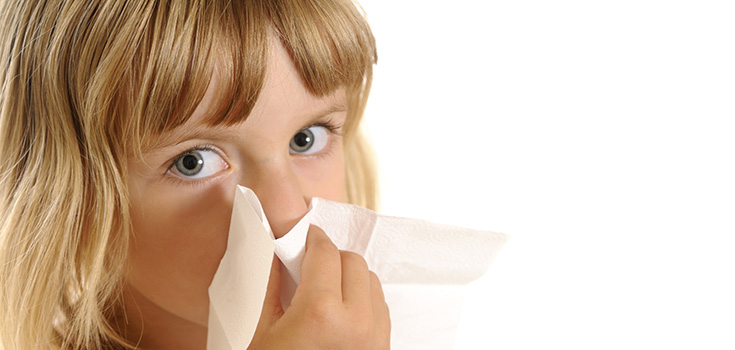Naturally Reducing Your Risk of Allergies and Reversing Symptoms

Considered to be the non-infectious epidemic of the 21st century, 1 in 4 European children have developed allergies. In the US, 6 million kids currently have food allergies alone. New research demonstrates how proper nutrition and breast milk can actually slash the risk of allergies quite significantly, adding further credit to the healing power of natural foods. A major topic of the EAACI Pediatric Allergy and Asthma Meeting (PAAM 2011), the role of breast milk is so instrumental in reducing the risk of allergies that the first 4-6 months prevent the development of atopic eczema and milk protein allergies.
Lifestyle changes and proper nutrition also reduce the risk, with many studies highlighting the role of common chemicals like phthalates in the development of allergies. Found in plastics worldwide, phthalates have been tied to not only allergies, but asthma. Of course limiting exposure to conventional plastics and utilizing safer alternatives like glass bottles for water storage is an excellent way of limiting exposure to these chemicals, which are often found in combination with estrogen-mimicking BPA.
Breast Milk Essential to Optimum Health and Disease Prevention
Even the United Nations has called on parents to continue breastfeeding their children for longer than 2 years exclusively. Linked to improved behavior, higher intelligence, decreases risk of SIDS, and now reduced allergy risk, it is shocking that only 36% of infants below the age of 6 months in developing countries are exclusively breastfed. It is obvious that breast milk is essential in allergy reduction and overall optimum health, though there are many other solutions utilizing proper nutrition that can help decrease allergies safely and effectively:
Raw milk: Children who consume raw milk are far less likely to develop allergies and asthma than those who consume pasteurized milk. In fact, researchers found that raw milk drinkers were 41% less likely to develop asthma over pasteurized milk drinkers.
Local honey: Used as an alternative allergy treatment for years, honey has been linked to 60 percent reduction in symptoms for birch pollen allergy sufferers. It is also loaded with enzymes and essential nutrients in raw organic form.
Additional Sources:
